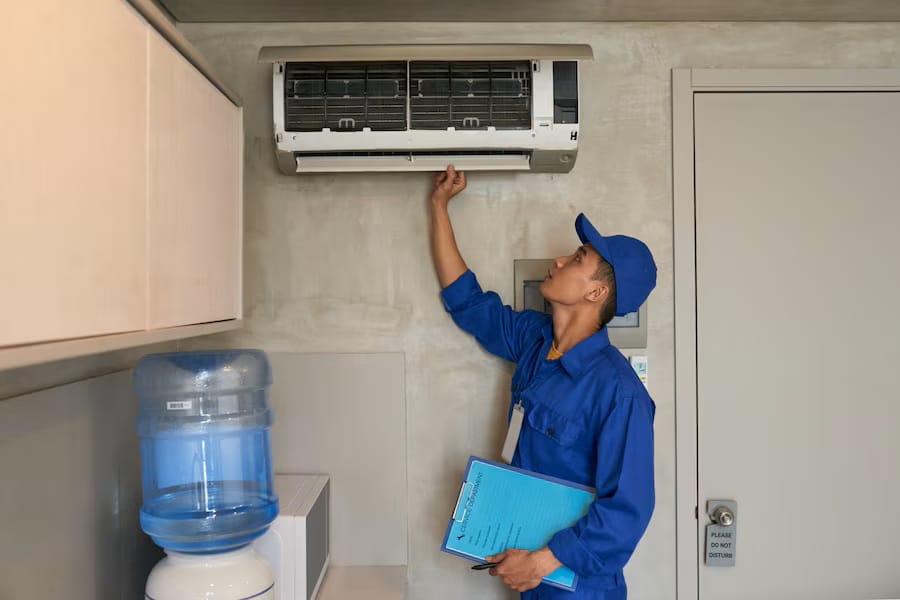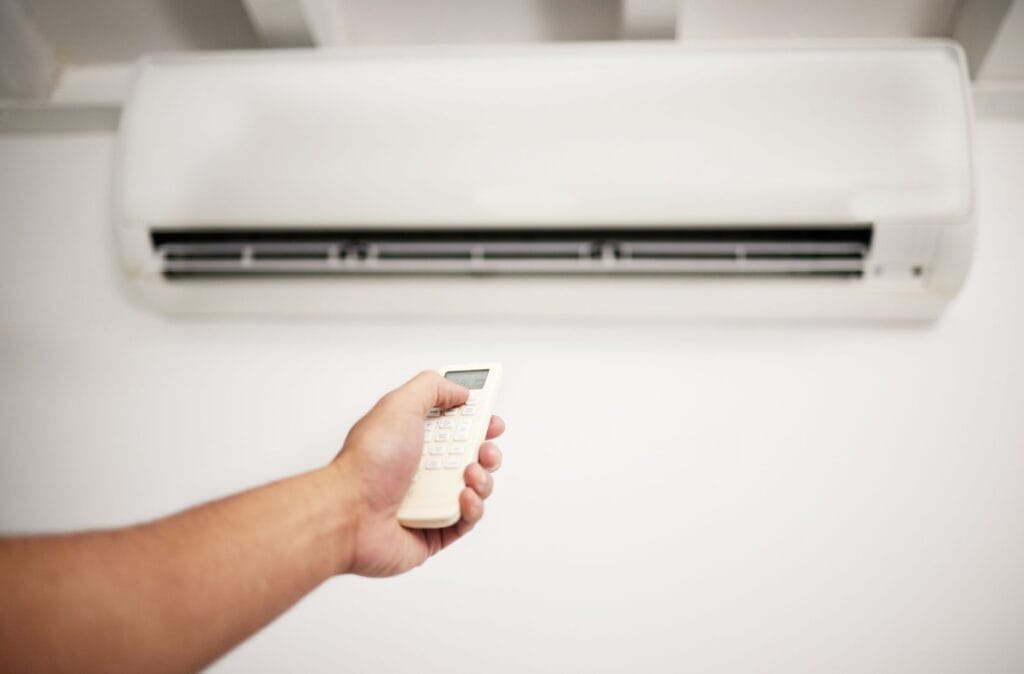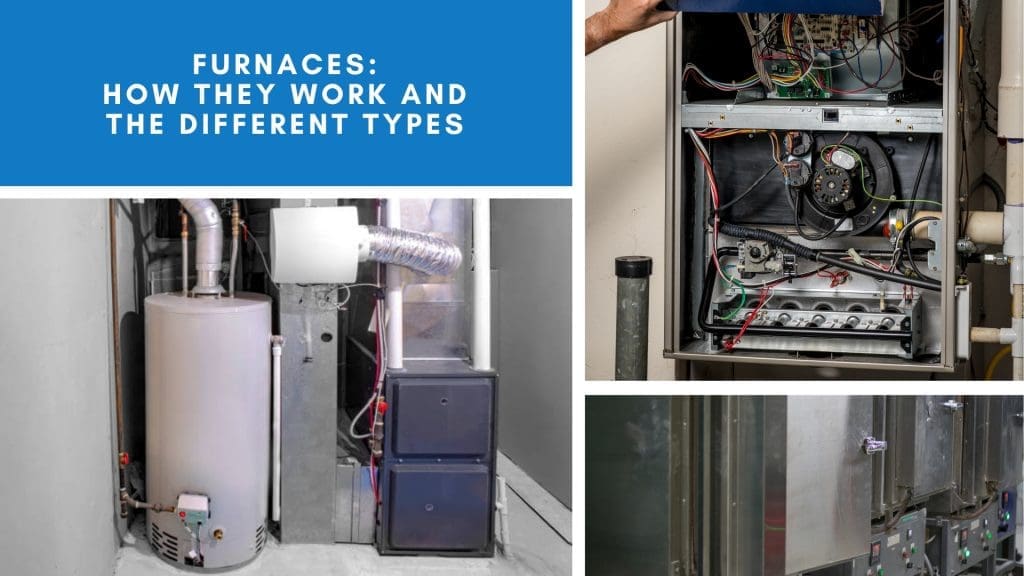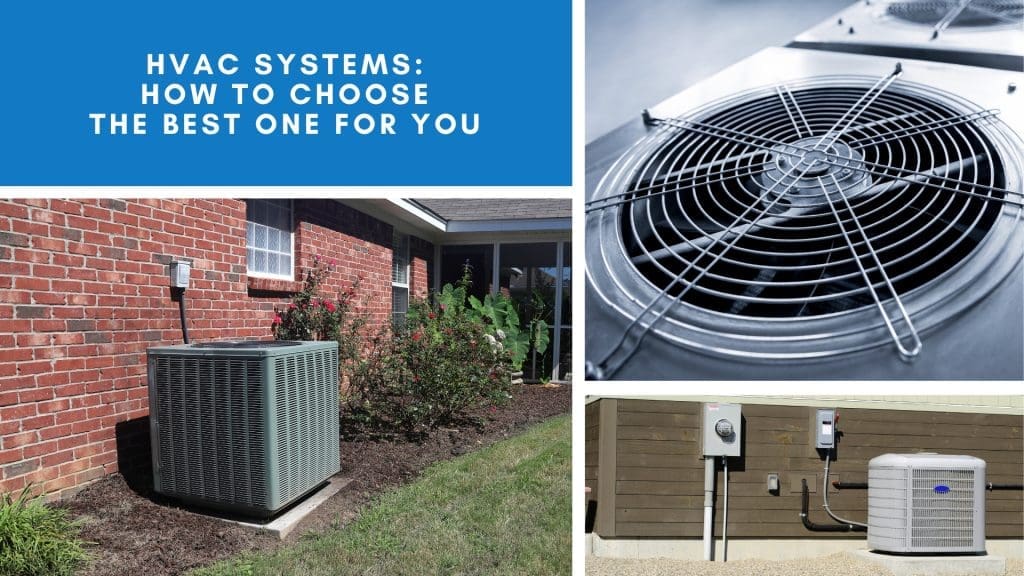In the warm, bustling city of Los Angeles, ensuring your air conditioning unit is functioning optimally is paramount. As an HVAC professional with a commitment to quality and customer satisfaction, I often encounter homeowners troubled by water leaks in their AC units. These leaks are not only inconvenient but can also lead to more significant issues if left unchecked. Let’s delve into why AC units leak water and how you can prevent this common problem.

Understanding Why Your AC Unit Might Be Leaking Water
Air conditioning systems are complex machines with several components working together to keep your home cool. A common issue many homeowners face is water leakage. Understanding why this happens is the first step in preventing it.
Condensation and Drainage
One primary cause of water leaks in AC units is condensation. As your air conditioner cools the air, it removes moisture, which collects as condensation. This process is entirely normal and necessary for the cooling effect to occur. However, when the system designed to handle the condensation fails, problems arise.
The drainage system typically involves a drip pan and a drain line that directs this water away from the unit. If either component is malfunctioning, water can overflow and cause leakage. It is crucial to ensure that the pan is not cracked and the line is clear to prevent any overflow.
Additionally, the positioning of the drainage system is important. If the unit is not level, water may not flow correctly, leading to pooling and leaks. This is why proper installation and maintenance are critical in preventing these issues.
Clogged Drain Lines
The drain line is crucial for directing condensed water away from your AC unit. Over time, algae, dirt, and debris can clog these lines, causing water to back up and potentially leak from your unit. Regular maintenance is key to preventing this issue.
An effective method to prevent clogs is using a wet/dry vacuum to clean the line periodically. This can help remove any debris that may have accumulated. Additionally, homeowners can use a vinegar solution to flush the line, which helps prevent algae growth, a common cause of blockages.
It’s essential to be proactive rather than reactive with your AC maintenance. Regular checks can help identify potential clogs before they cause any water damage. If you notice water pooling around your AC unit, it’s a sign that the drain line may be obstructed.
Frozen Evaporator Coils
Evaporator coils can freeze if there is insufficient airflow over them. This often happens when the air filter is dirty, blocking the flow of air. When the ice melts, excess water can overflow the drain pan, leading to leaks.
The most common cause of frozen coils is a dirty air filter. A blocked filter restricts airflow, causing the coils to drop in temperature and eventually freeze. Replacing or cleaning your air filter regularly can prevent this issue. It is generally recommended to check your air filter every month and replace it as needed.
Another potential cause is low refrigerant levels. If the refrigerant is low, the pressure in the system drops, which can cause the coils to freeze. If you suspect low refrigerant, it’s best to call a professional for a refill and system check.
Lastly, ensure that there are no obstructions around your AC unit. Furniture, drapes, or other objects can limit airflow, contributing to the freezing of coils.

Faulty Installation
Improper installation of your AC unit can also lead to water leakage. If the unit is not level, water may not drain properly and could pool inside the unit. It’s vital to have your unit installed by a professional to prevent this.
Proper installation involves ensuring that all components are securely in place and that the unit is level. A slanted unit can cause water to collect in one area, leading to overflow and leaks. Additionally, incorrect installation can lead to other inefficiencies in the system, impacting its overall performance.
It’s also crucial to use the appropriate size unit for your space. An oversized unit can cool the room too quickly, not allowing enough time for the moisture to be removed effectively. This can lead to excess condensation and potential leaks.
Lastly, ensure that the installation includes a proper drainage system. This will help manage the condensation effectively, preventing any potential leaks.
Steps to Prevent Water Leaks in Your AC Unit
Now that you understand the common causes of water leaks, let’s explore practical steps to prevent them.
Regular Maintenance and Inspections
Routine maintenance is the best way to keep your AC unit in top condition and prevent leaks. Schedule regular inspections with a qualified HVAC technician who can check for clogs, ensure proper drainage, and address any potential issues before they become problems.
These inspections should include checking the refrigerant levels, cleaning the evaporator and condenser coils, and inspecting the electrical connections. A professional can also calibrate the thermostat to ensure your system runs efficiently.
Regular maintenance also helps extend the lifespan of your AC unit. By addressing minor issues early, you can prevent costly repairs or replacements down the line. Always keep a record of your maintenance schedule to ensure your unit receives the attention it needs.
Keep the Drain Line Clear
Regularly check the drain line for blockages. You can use a wet/dry vacuum to remove debris from the line. Some homeowners find it helpful to periodically flush the line with a vinegar solution to prevent algae buildup.
In addition to vinegar, a mixture of bleach and water can be used occasionally to keep the drain line clean. However, this should be done with caution and not too frequently, as it can potentially damage the line if overused.
Consider installing a float switch to shut off the AC unit if the water level in the drain pan gets too high. This can prevent overflow and subsequent leaks. It’s a cost-effective solution to avoid water damage.
Regular inspection of the drain line is key to identifying any potential blockages early. If you notice slow drainage or leaks, it’s time to take action to clear the line before it leads to more significant issues.
Replace Air Filters Frequently
A clean air filter ensures proper airflow over the evaporator coils, preventing them from freezing. Check your filter monthly and replace it as needed, typically every one to three months, depending on usage and the specific conditions in your home.
Different environments have varying levels of dust and allergens, affecting how often you need to replace the filter. Homes with pets or in high-pollen areas may need more frequent replacements. Keeping spare filters on hand can make this task easier and more convenient.
Educate yourself on the different types of air filters available. Some are more effective at trapping dust and allergens than others. Choose a filter that suits your needs and budget while ensuring it maintains optimal airflow.
Remember, a clean filter not only prevents leaks but also improves the air quality in your home, creating a healthier environment for you and your family.

Ensure Proper Installation
If you suspect your AC unit wasn’t installed correctly, it’s worth having a professional evaluate it. A properly installed unit should be level and secure, with all components in good working order.
During an evaluation, a professional can also check for other potential installation issues, such as incorrect wiring or inadequate insulation. These factors can affect the efficiency and safety of your system.
Revisiting the installation process ensures that the system components are compatible and functioning as intended. Misalignment or improper connections can lead to various problems, including water leaks.
Investing in a professional installation from the outset can save you from future headaches. It’s a critical step in ensuring your AC unit operates effectively and efficiently throughout its lifespan.
Monitor for Signs of Trouble
Be vigilant for signs of water leaks, such as water pooling around your unit or an unexpected increase in humidity indoors. Addressing these issues promptly can prevent more significant problems down the line.
Other signs to watch for include a musty smell, which could indicate mold growth from excess moisture. Listen for unusual noises coming from the unit, as this could signal a problem with the fan or other components.
Regularly monitoring your system allows you to catch small issues before they become more severe. Make it a habit to check your AC unit, especially during peak usage months.
If you notice any persistent problems, don’t hesitate to consult a professional. Early intervention is key to maintaining the efficiency and reliability of your air conditioning system.
When to Call a Professional
While many homeowners can handle basic maintenance, some situations require a professional touch. If you’ve followed the preventive steps and still experience water leaks, it’s time to call an HVAC expert. Here are some scenarios when professional help is necessary:
- Persistent Leaks: If water continues to leak despite your efforts, a professional can diagnose and fix the underlying issue. They have the tools and expertise to identify problems that might not be obvious to an untrained eye.
- Complex System Issues: Problems like a faulty condensate pump or damaged evaporator coils are best handled by a trained technician. These components can be delicate and require specific knowledge to repair or replace.
- Installation Concerns: If you suspect your unit was improperly installed, a professional can assess and correct the situation. Proper installation is critical to the overall function and efficiency of your system.
Don’t wait for a minor issue to become a major repair. Professional intervention can save you money and extend the life of your AC unit. Always choose a reputable and experienced HVAC service provider to ensure quality work.
Conclusion
Water leaks in AC units can be a source of frustration, but with regular maintenance and attention to detail, they are largely preventable. By understanding the causes and following the preventive steps outlined above, you can ensure your air conditioning system operates smoothly and efficiently, providing relief from the Los Angeles heat.
Remember, if you’re ever in doubt or face persistent issues, don’t hesitate to reach out to a trusted HVAC professional. At LC Heating and Air Conditioning, we pride ourselves on our expertise and commitment to customer satisfaction. Whether it’s routine maintenance or a more complex repair, we’re here to help keep your home comfortable year-round.
For more information or to schedule a service, visit our website at lahvaclc.com or call us at (818) 858-7080.
Stay cool and leak-free, Los Angeles!


